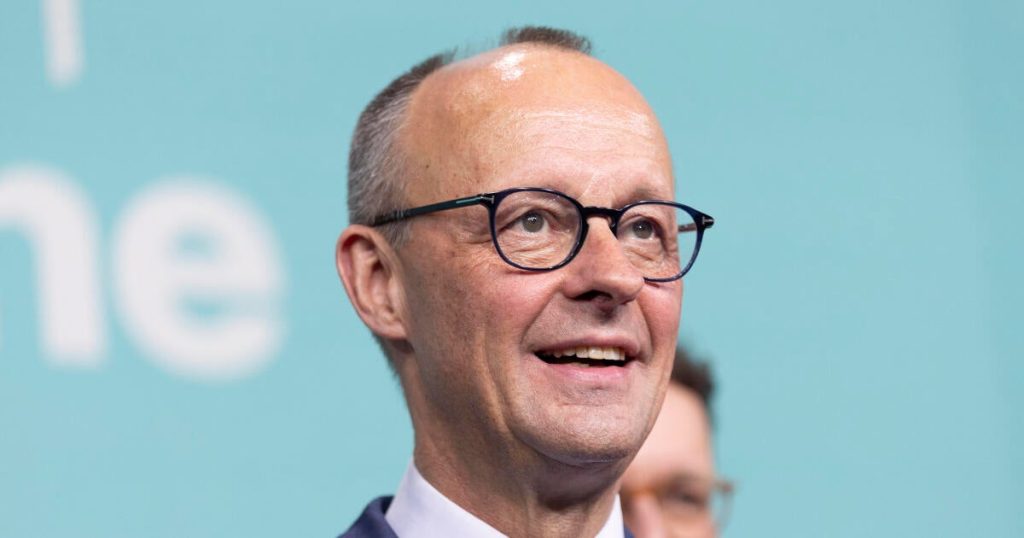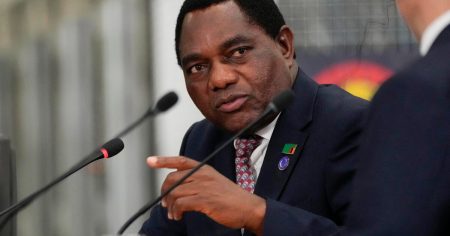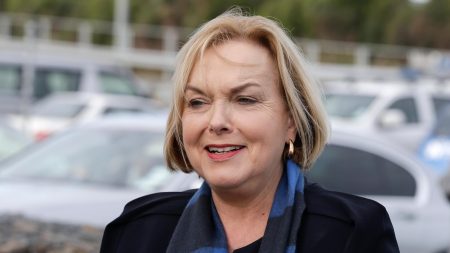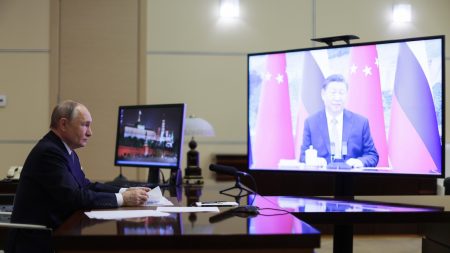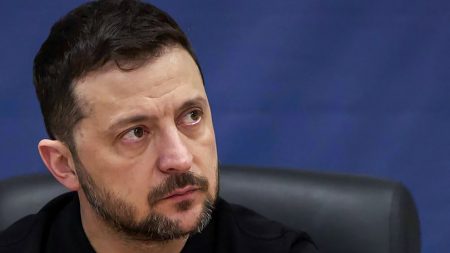The Rise of Friedrich Merz: Germany’s Next Chancellor and the Challenges Ahead
Friedrich Merz, poised to become Germany’s 10th post-World War II chancellor, has pledged to prioritize European unity and security amid mounting global challenges, including the new Trump administration and Russia’s ongoing war in Ukraine. As Germany’s election results unfold, Merz, the leader of the center-right Union bloc, has emerged victorious with 28.5% of the votes. His victory comes at a critical juncture for Europe, where leadership is sorely needed to address pressing issues such as trans-Atlantic relations, migration, and economic stagnation. However, uniting a divided Europe will not be an easy task, as many European leaders are preoccupied with domestic challenges, leaving little bandwidth to tackle the continent’s broader concerns. Expectations are high for Merz to fill the leadership vacuum and craft a unified European response to shifting U.S. policies that have strained the trans-Atlantic alliance.
Merz’s Vision for Europe and the Trans-Atlantic Alliance
Merz has singled out European unity and security as his top priorities, recognizing the immense pressure Germany and the continent face from both the United States and Russia. He has acknowledged that U.S. interest in Europe is waning under the new Trump administration, stating, "All the signals we are getting from the USA indicate that interest in Europe is clearly waning, and the willingness to get involved in Europe is decreasing." Despite these challenges, Merz expressed optimism about maintaining strong trans-Atlantic ties, emphasizing the mutual benefit of cooperation. "I hope that we can convince the Americans that it is in our mutual interest that we continue to have good trans-Atlantic relations," he remarked.
However, Merz’s task is further complicated by the need to form a coalition with the center-left Social Democrats (SPD) of outgoing Chancellor Olaf Scholz. Despite the far-right Alternative for Germany (AfD) party securing its best-ever result in the national election, Merz has reiterated his commitment to not collaborate with the AfD, citing its anti-immigrant and extremist leanings. This decision underscores Merz’s efforts to maintain political stability and uphold democratic values in Germany.
The Path to Power: Merz’s Political Journey
Friedrich Merz’s ascent to the chancellery is a story of perseverance and redemption. A lawyer by profession, Merz has had a long and tumultuous political career, marked by both triumphs and setbacks. His rise to prominence was initially derailed by former Chancellor Angela Merkel, who eclipsed him in the early 2000s and consolidated her grip on the center-right Union bloc. Merkel later described Merz as a "brilliant speaker" but acknowledged that their shared desire for leadership created tension in their relationship. "We both wanted to be the boss," she wrote in her memoir.
After being sidelined, Merz stepped away from active politics for several years, during which he pursued a career in law and business, including a stint as the head of BlackRock’s German branch. His international outlook, shaped by frequent travels to the United States and China, has been highlighted as a unique asset for a German leader. Biographer Volker Resing described Merz as "perhaps the most international chancellor Germany has had since the war," noting his emphasis on individual initiative and creativity over state intervention.
Merz’s political comeback began in earnest after Merkel stepped down as CDU leader in 2018. Despite initial setbacks—he was narrowly defeated in party leadership votes in 2018 and 2021—Merz persisted and was eventually elected party leader in 2021. His victory cemented his position as the leader of the Union bloc and set the stage for his chancellorship.
Merz’s Leadership Style and Policy Agenda
Merz’s approach to politics is characterized by a willingness to confront tough issues head-on, even if it means provoking debate. His policy agenda has focused on reviving Germany’s struggling economy and addressing irregular migration, which has become a contentious issue in German politics. During the election campaign, Merz introduced a nonbinding motion to toughen immigration laws, calling for stricter border controls. The motion, which was narrowly approved with support from the far-right AfD, drew criticism from opponents who accused him of breaking taboos and colluding with extremists.
Despite the backlash, Merz has denied any collaboration with the AfD, which has been placed under surveillance by German intelligence for suspected extremism. He has consistently pledges a hardline stance against the party, despite the erosion of the political center. This decision reflects his commitment to maintaining democratic norms and preventing the further rise of far-right influence.
The Controversy Surrounding Merz’s Immigration Stance
Merz’s stance on immigration has sparked widespread controversy, both within Germany and beyond. His proposed measures to curb irregular migration, including turning back more asylum seekers at the border, resonated with some voters but alienated others. The approval of his motion with AfD votes prompted Merkel to publicly rebuke him, accusing him of undermining democratic principles. Critics have also accused Merz of impulsive decision-making, pointing to the episode as evidence of his tendency to act without fully considering the consequences.
The controversy has spilled onto the streets, with hundreds of thousands of protesters rallying against both Merz’s policies and the rise of the far-right AfD. Many Germans fear that the growing influence of far-right ideologies could lead to a repeat of the country’s dark past. "We know what happened in Germany in the ’30s, and it feels a bit like this is happening again," one protester remarked.
Merz’s Personal Life and the Man Behind the Politician
For all his political ambition, Friedrich Merz remains deeply rooted in his rural upbringing in western Germany. Growing up in a conservative, down-to-earth community shaped his values and worldview, emphasizing family, tradition, and individual responsibility. Merz, who has been married to his wife Charlotte since his law school days, championed conservative values throughout his career, often drawing on his personal life as a source of inspiration.
When not immersed in politics, Merz is an avid pilot who finds solace in flying. The hobby, which has occasionally drawn criticism as a "rich man’s indulgence," is for Merz a symbol of freedom. "When you’re above the clouds, that’s freedom," he once remarked. This passion reflects a side of Merz that is both determined and reflective, qualities that will undoubtedly influence his approach to leadership as he navigates the complex landscape of European politics.
As Merz prepares to take the reins of power, the world will be watching closely to see if he can deliver on his promises of unity, stability, and prosperity for Germany and Europe.





